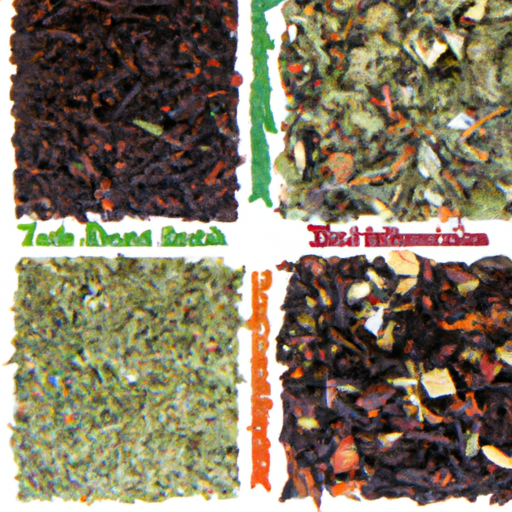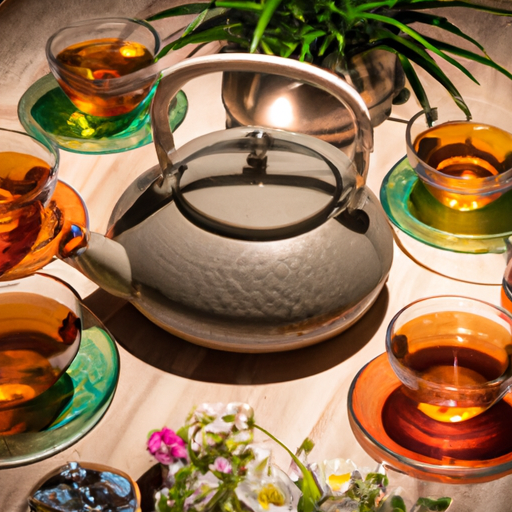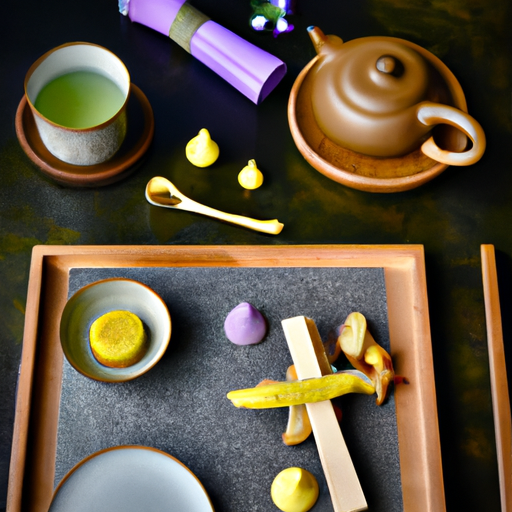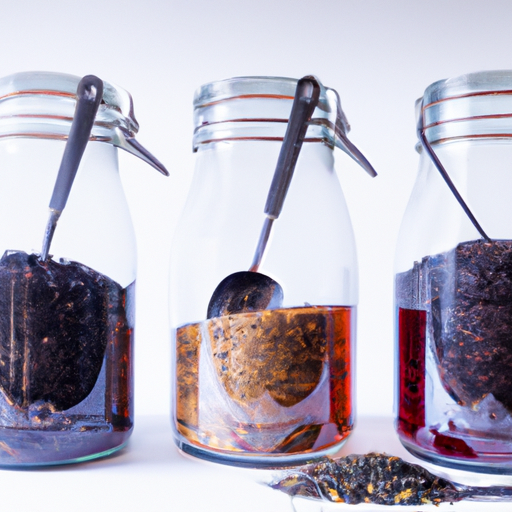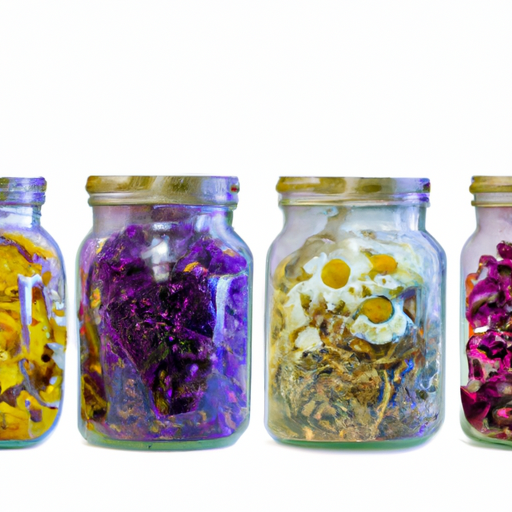Grab a cuppa and embark on a flavorful journey through the enchanting world of African teas.
They say variety is the spice of life, and when it comes to teas, Africa offers an exquisite range of flavors that will tantalize your taste buds.
From the robust Kenyan black tea to the soothing herbal goodness of South African rooibos, the continent is a treasure trove of diverse and delicious brews.
Sip on the rich and earthy notes of Ethiopian spiced tea, a delightful blend of black tea and aromatic spices that will warm your soul.
Or indulge in the refreshing sweetness of Rwandan high-grown teas, renowned for their exquisite quality.
And let’s not forget the health benefits – purple tea from Kenya boasts high levels of anthocyanin, while red rooibos is packed with antioxidants.
So, whether you’re a tea connoisseur or simply looking to explore new flavors, join me as we uncover the delightful world of African teas.
Get ready to savor the warmth, the richness, and the sheer joy that these teas bring.
Key Takeaways
- African teas have a distinct taste that is described as delicious, earthy, and warm.
- Kenya is the third largest tea producer in the world, followed by China and Japan.
- Rooibos and honey bush are popular herbal teas from South Africa, each offering different flavor profiles and health benefits.
- North African Mint tea and Ethiopian Spiced tea are unique blends that showcase the diversity of African tea culture.
Types of African Teas
I’ve learned that African teas come in a wide variety of types, including herbal rooibos and honey bush, as well as white, green, oolong, black, and dark fermented tea.
African tea culture is rich and diverse, with each country having its own unique traditions and flavors. Traditional tea ceremonies are often held to celebrate special occasions or to welcome guests. These ceremonies involve preparing and serving tea in a specific way, sometimes with elaborate rituals and etiquette.
The teas themselves are a reflection of the continent’s vibrant flavors, with each type offering its own distinct taste and aroma. Whether it’s the earthy warmth of rooibos, the boldness of black tea, or the delicate notes of white tea, African teas truly have something for everyone to enjoy.
Health Benefits
Kenyan purple tea stands out for its high levels of anthocyanin, offering various health benefits. This unique tea has a beautiful purple color and a distinct flavor profile that sets it apart from other African teas. When preparing Kenyan purple tea, you can steep the leaves in hot water for a few minutes to enjoy its rich taste and aroma. Alternatively, you can try cold brewing the tea for a refreshing summer beverage.
African teas hold great cultural significance in the continent. They’re not just beverages, but a way of life. In many African countries, tea is a symbol of hospitality and is often served to guests as a sign of welcome. The rituals and traditions associated with tea preparation and serving are passed down through generations, creating a sense of community and connection.
Whether it’s a cup of Kenyan black tea enjoyed with breakfast or a soothing cup of North African Mint tea shared with friends, African teas offer a glimpse into the diverse cultures and flavors of the continent.
Popular Tea Blends
When exploring African tea culture, one can’t help but be intrigued by the popularity of unique and flavorful tea blends. Tea traditions in Africa are rich and diverse, with a wide range of blends that showcase the continent’s unique tea flavors.
One popular tea blend is the North African Mint tea, which is well-known and served throughout North Africa. This refreshing blend combines fresh mint leaves with green tea from China, creating a delightful and invigorating flavor profile.
Another unique blend is the Ethiopian Spiced tea, which combines Ethiopian black tea with aromatic spices like black cardamom, cloves, cinnamon, and ginger. This blend offers a warm and spicy flavor that is both comforting and exotic.
These popular tea blends highlight the creativity and ingenuity of African tea culture, making them a must-try for tea enthusiasts.
Frequently Asked Questions
How do African tea producers ensure the quality and freshness of their tea?
Producing top-notch African teas requires a keen eye and attention to detail. Tea producers employ various techniques, such as meticulous plucking, proper withering, precise rolling, and careful oxidation, to ensure the quality and freshness of their tea.
Are there any specific brewing techniques or preparations that enhance the flavor of African teas?
Brewing techniques and flavor enhancing preparations can enhance the flavor of African teas. For example, steeping at the right temperature and time, using fresh water, and adding honey or lemon can bring out the unique flavors of these teas.
Can African teas be enjoyed with milk or other additives, or are they traditionally consumed plain?
African teas can be enjoyed plain or with milk and other additives, depending on personal preference. However, it’s important to note that some teas, like rooibos and honey bush, have their own unique flavors and health benefits. African tea recipes offer a variety of ways to enjoy these teas.
Are there any specific rituals or traditions associated with the consumption of African teas?
African tea ceremonies hold cultural significance in many African countries. These rituals often involve specific preparation methods, such as steeping the tea leaves in a particular way, and are accompanied by traditional customs and etiquette.
Are there any rare or limited edition African teas that are highly sought after by tea enthusiasts?
Oh, the joy of rare African teas! These highly sought after blends are the treasures of tea enthusiasts. From exquisite limited editions to hidden gems, they offer a world of flavors waiting to be discovered.
Conclusion
In conclusion, exploring the flavors of African teas is like embarking on a sensory journey through the continent’s diverse landscapes.
From the robustness of Kenyan black tea to the spiced allure of Ethiopian tea, each cup tells a story of tradition and culture.
Sipping on a steaming cup of red rooibos, one can almost taste the sun-drenched plains of South Africa.
The earthy aroma of North African Mint tea transports you to bustling Moroccan markets.
With every sip, these teas offer not just a delightful taste, but a connection to the rich tapestry of Africa.
So, grab a cup and let the flavors of Africa awaken your senses.

